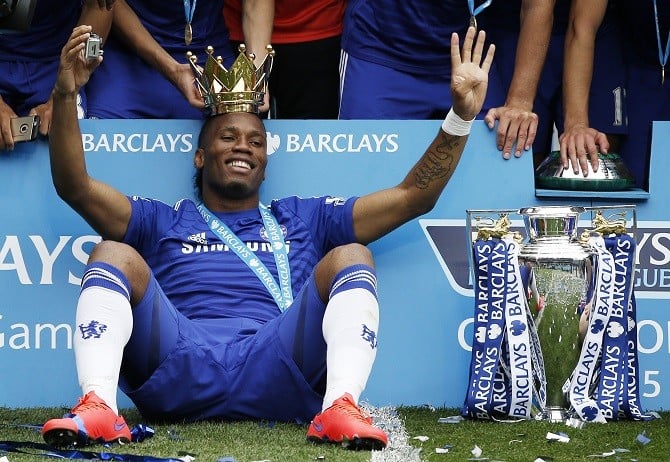With a total revenue of $5 billion in 2014, and superstars such as Wayne Rooney, Sergio Agüero, Mario Balotelli hitting the pitch on a weekly basis during the season, the Barclays Premier League is the most valuable soccer league, and the third most valuable sports league in the world. But a major change will soon be coming to the world's preeminent soccer league that may have significant financial implications.
During the recent summer meetings for the Premier League, the 20 clubs that make up the league made the decision not to pursue a title sponsor after their current sponsorship deal with Barclays expires at the end of the 2015-16 season. Though the league was fielding an offer of nearly $70 million from alcoholic beverage brand Diageo, the league decided against it and will be known simply as 'The Premier League," starting with the 2016-17 season. The move serves as an attempt by the league to emulate the "clean" branding strategy that American leagues such as the NFL and NBA currently employ.

ADRIAN DENNIS/AFP/Getty Images
The 2016-17 Premier League season will be the league's first without a title sponsor since its inaugural season in 1992-93. In 1993, the league signed a four-year deal with brewing company Carling, which was worth nearly $18 million. Carling paid the league triple that amount in 1997 to ink another four-year deal with the league, before Barclaycard signed a three-year deal with the league in 2001 which was worth roughly $73 million. Barclays has been the league's sponsor since 2004, initially signing a three-year sponsorship deal with the league, which was worth $87.5 million, with the deal's value skyrocketing up to nearly $200 million during the last three-year extension which was signed in 2012. The bank announced in March that they would not be interested in renewing the deal after the 2015-16 season, which prompted the league's decision to go without a title sponsor for the 2016-17 season.
Premier League sources confirm that though the league has decided to go in a "clean" branding strategy direction, their decision in no way affects the manner in which individual teams can choose to pursue their own individual sponsorship strategies. In theory, the clubs could pursue individual sponsorship deals with companies in order to offset the money lost via the lack of a title sponsor. For Premier League superclubs such as Chelsea, Liverpool, Manchester City and Manchester United – which was just recently crowned the most valuable soccer club in the world – with a valuation of over $1 billion, finding additional sponsorship will hardly be an issue.
The Premier League likely has a strong belief that, with the money brought in from their television deals, along with the global recognition of Premier League clubs, "The Premier League" will do just fine without a title sponsor.
/2015/07/Manchester-United.jpg)
/2024/12/GettyImages-1138920658.jpg)
/2016/04/GettyImages-502198300.jpg)
/2017/03/GettyImages-471076916.jpg)
/2014/06/GettyImages-924213860.jpg)
/2016/03/GettyImages-513352322.jpg)
/2013/12/dan.jpg)
/2011/12/John-Mara-1.jpg)
/2020/08/gc-1.jpg)
:strip_exif()/2020/06/taylor.png)
/2011/12/Rooney-Mara1.jpg)
/2014/04/GettyImages-886617106.jpg)
/2020/03/favre.jpg)
/2010/12/kate-1.jpg)
/2022/10/peter-krause.jpg)
/2020/10/the-miz.png)
/2011/01/Aaron-Rodgers.jpg)
/2014/08/sp-1.jpg)
/2020/07/jared-kushner.jpg)
/2013/10/Bernadette-Peters-1.jpg)
/2010/03/emil.jpg)
/2016/01/Kirk-Cousins.jpg)
/2024/10/Jordan-Love-.jpg)